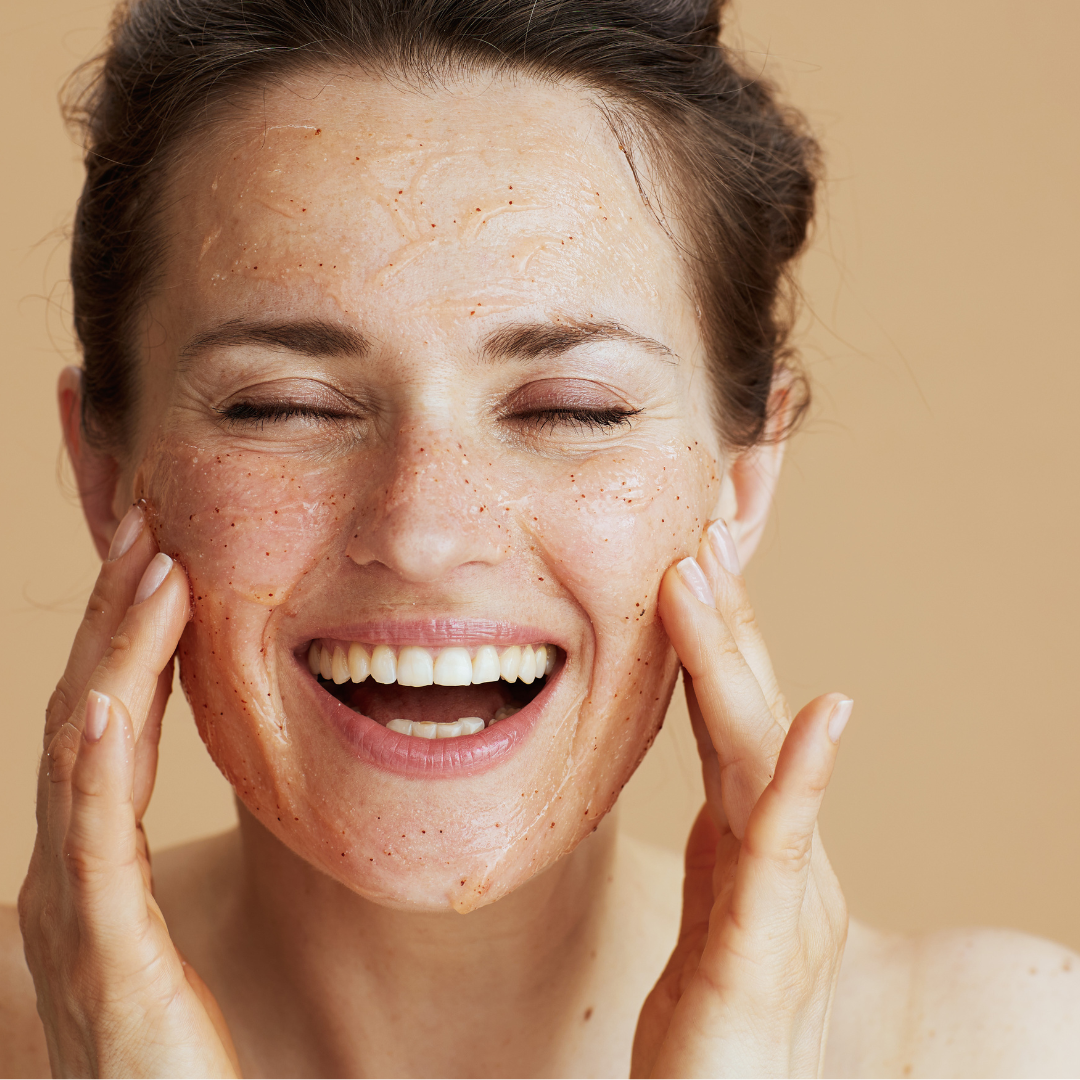Reading time: 5 minutes
UV radiation effects on the skin + tips against sunburn
The impact of UV radiation on our skin is significant, and with the approaching summer months, sun protection is high on the agenda. After all, too much sun can lead to burning, premature skin aging and dehydration. So how do we best protect our skin? Whether you choose to apply sunscreen or prefer to look at protection from within ; it is essential to deal consciously with sunlight.
In this article, we share insights into the benefits and risks of sunlight and discuss natural protection methods against UV radiation.
Sunlight: blessing or worry?
It is a difficult dilemma. The sun is both friend and foe. On the one hand, it gives our body a big boost by producing important substances. On the other hand, too much exposure can cause serious damage to our skin. Let's look at the pros and cons.
The benefits of sunlight:
- Vitamin D production: Under the influence of sunlight, our skin produces vitamin D, which is essential for strong bones and a healthy immune system.
- Cortisol Production: Sunlight can stimulate the production of cortisol, a hormone that helps regulate our metabolism, immune system, and sleep cycle. Feeling a little blue? Maybe you just need some extra sunlight!
- Serotonin production: Sunlight promotes the production of serotonin, which makes us feel happier and sleep better.
The risks of sunlight:
- Skin Burn: Staying in the sun for too long can lead to painful sunburn, resulting in redness, itching, skin damage and flaking.
- Wrinkles and ageing: UV radiation can damage our skin and lead to premature ageing, resulting in wrinkles, pigment spots and less elastic skin.
- Dehydration: Sunlight can not only dehydrate our skin, but also our bodies. So make sure you always drink enough water, especially on hot, sunny days.
- Eye Damage: Direct and intense sunlight can also damage the eyes.
In short, the sun is a great source of energy and vitality, but we have to take good care of it!
Sunscreen: A Necessity or a Risk
Sunscreen is the most widely used protection against the harmful effects of the sun. But is sunscreen actually that healthy?
It is already known that some substances in sunscreen can break down coral in the sea.
Let's take a look at what happens when that cream enters our body.
Many of those chemical UV filters in sunscreens are absorbed by our skin and can be found in our blood, urine and even breast milk . And that can cause quite a few problems, such as disruptions to our hormone balance and an increase in free radicals.
Which substances should you avoid?
- Avobenzone
- Oxybenzone
- Homosalate
- Octisalate
- Octinoxate
- Octocrylene
The problem? Often, only the short-term effects of these substances have been studied. So we don't yet know exactly what the long-term effects are, especially when all these chemicals are in one product.
Fortunately, there are also good brands and options to protect your skin.
Natural sunscreen without harmful substances
Want to brave the sun without worrying about harmful chemicals? Look into sunscreens with mineral filters like zinc oxide and titanium dioxide . These filters work by reflecting and absorbing UV rays.
And the best part? They don't cause free radicals and are kinder to your skin. Plus, they're biodegradable and environmentally friendly.
But beware: Some manufacturers use nanoparticles of zinc oxide and titanium dioxide to prevent that annoying white cast on your skin. The problem? Those tiny particles can penetrate your skin. And there are concerns about mineral filters in spray form, because you could inhale them, which is bad for your lungs. So opt for a sunscreen without nanoparticles instead.
Sun protection from within
When your skin is exposed to UV rays, free radicals are released in your skin cells. These little villains can cause damage to your cell membranes, DNA and proteins . Fortunately, there are antioxidants that neutralize these free radicals and protect you from UV rays.
Which antioxidants are important for your sun protection?
- Vitamin C: citrus fruits, peppers, kiwis, berries, tomatoes and broccoli.
- Vitamin E: nuts, seeds, avocados and vegetable oils.
- Polyphenols: green tea, dark chocolate, grapes, nuts and berries.
- Carotenoids: beta-carotene, lutein, astaxanthin, zeaxanthin and lycopene, in brightly colored fruits and vegetables such as carrots, tomatoes, spinach, mango and sweet potatoes.
- Selenium: nuts, seeds, fish, shellfish, meat and poultry.
- Zinc: meat, fish, poultry, nuts, seeds and whole grains.
- Omega-3 fatty acids: are not direct antioxidants, but they do have antioxidant properties.
Research shows that a higher intake of omega-3 fatty acids is associated with a reduced risk of sunburn and skin damage from UV radiation. Also pay attention to the balance between omega-3 and omega-6 fatty acids for healthy skin and a good barrier function.
Astaxanthin: A Powerful Internal Sunscreen
Astaxanthin, a carotenoid produced by algae and plankton, serves as protection against stressful conditions such as drought and excessive exposure to sunlight.
Did you know: flamingos owe their pink color to this wonderful substance.
Astaxanthin is considered one of the most powerful antioxidants, with an activity many times higher than that of other carotenoids and vitamin E.
It provides better protection against the damaging effects of the sun and is found in high concentrations in tissues such as the skin and eyes, which are typically most exposed to sunlight.
Want to know more about astaxanthin? Read this blog.
Tips & tricks for natural protection
Whether you are a fan of sunscreen or prefer to go through life without it, the most important thing is to prevent sunburn. If you want to enjoy the summer sun rays to the fullest, prepare yourself!
Here are some helpful tips:
- Take 15 to 30 minutes a day to enjoy the sun without sunscreen and sunglasses. This promotes the production of vitamin D and other important substances.
- Avoid the sun during the hottest hours of the day, between 12:00 and 15:00, to prevent skin damage. You can check this on www.rivm.nl : if the sun power is above 3, the chance of burning is high.
- If you are going to be in the sun for long periods of time or go outside during the hottest parts of the day, wear protective clothing, seek shade and/or use sunscreen with non-nano mineral filters.
- Make sure you get enough antioxidants, such as vitamin C , omega 3 and carotenoids, to protect your skin from the sun from the inside out. Astaxanthin is an absolute winner!
- Do 'sun training' by gradually exposing your skin to the sun. Start in the spring with 5 minutes of uncovered exposure 2 to 3 times a week and slowly build up to 20 to 30 minutes. This allows your skin to get used to the sun and better protect against sunburn.
Want to learn more about glowing skin from the inside out? Read this blog .
Summary:
The blog highlights the impact of UV radiation on the skin and offers tips for preventing sunburn. It highlights the benefits and risks of sunlight, discusses the use of sunscreen and introduces natural alternatives. Furthermore, the benefits of antioxidants and astaxanthin for sun protection from within are discussed. Finally, practical tips for safe sunbathing are given.
Do you have any questions?
Do you have any questions after reading this blog? Don't hesitate to contact us free and customized advice or contact us directly. Our dedicated team is ready! Looking for more inspiration? Feel free to visit our Instagram page or check out our other recipes, blogs for a wealth of healthy and tasty ideas. We love sharing knowledge and tips to take your well-being to the next level!




